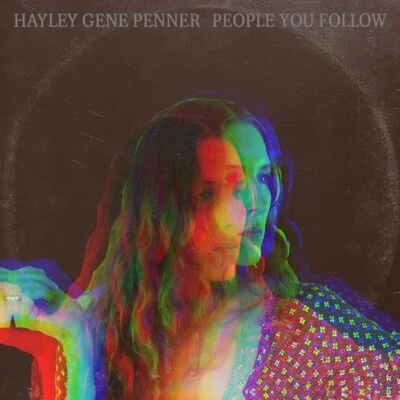Hayley Gene Penner on her experience as a writer and the People You Follow
Image via Hayley’s album cover ‘People You Follow’.
As a long-time singer/songwriter, Hayley Gene Penner has a great deal of first hand experience as a Woman in the music industry. Her memoir ‘People You Follow’ reads as just as much of a story as the songs she has written, and serves as a reminder of the maintained power complex between Men and Women that are rife in many career sectors.
What compelled you to write in the form of a memoir? Is there a particular significance of this personable writing?
I started writing in response to a hard night with a friend, “Duckie” in the book. On the back of feeling very hurt I wasn’t sure what to do, so I just started writing. The idea was really to just be as brutally honest as possible. And especially after being in an affair for so long I was really craving just telling all the secret things I had been holding on my own for so long.
Beginning with the lunchbox analogy, is this something you continue to recognize in your adult life? Can/should it be changed?
I think the thing that stands out to me about that analogy is that it’s outside of your control as a kid. I think as an adult many other status defining things have similar power though, fashion, where you live, how you look, professional accomplishments. They all become really dangerous ways for us to compare ourselves to each other and in the world of social media it can be even more damaging and insidious.
You talk about yourself and your experiences being recognizable only in hindsight. Do you think there is a way for the industry to become more accommodating for growth whilst being a safe environment?
I think we all just need to keep being vocal about changes we want to see happen within our professional environments and personal lives. For a long time, I was very scared to vocalize anything out of a fear of losing that thing and now I have set it as a daily practice to just express myself as honestly as I can as much as I can.
Was the lack of Women in the music industry around you glaringly obvious at the time, or was that how you expected it to be?
It wasn’t obviously an issue to me at all. If anything, I prided myself on being “one of the guys.” I think it’s a really common trap young woman get into, this idea that by being able to ‘hang’ your value is somehow heightened. I definitely held on to that belief for a long time until I started seeking out more women in my professional environments and saw my life change dramatically as a result.
How long did it take for you to seek out a more balanced environment for yourself?
After I finished the book and got out of my deal with “Tal’s” company, I started seeing more women in my life. I met my manager, Maytav, who introduced me to my attorney, Lulu and from there it just spiralled. Now I have a team of really incredible women around me and my life is the better for it.
There are quite a few repeated phrases throughout ‘People You Follow’ – were there times where you felt your experiences became very repetitive or unavoidable?
I have definitely felt stuck in a loop of my own design at several points in my life. I have felt enslaved to my specific issues in a way that made getting off the exact hamster wheel feel like an impossibility. I think the repetition in the writing came from being a songwriter. I found myself almost writing choruses within my chapters. Little moments like opportunities to sing along.
The marbles chapter is something that particularly stuck out to me. Is this something that still translates into your life, with a sense of lack of control over your fate?
Definitely. It still appears in my life in the sense that my perhaps less healthy impulses still make themselves known. It just takes life experience and practice to not fall into destructive patterns that I know don’t serve me.
Is there something you wish could be instilled in young girls entering their teenage years/adulthood with more power over their experiences?
It feels so simple but I think the thing I found really hard to put into practice, especially in my 20’s was, you can say, No at any point. You can say yes ten times then get to the door opening on the prop plane with a parachute strapped to your back and say, No. I have definitely let myself go through with things because I felt responsible for saying yes for so long before saying, no.
What are the ‘necessary casualties’ you think are most important?
People who don’t treat you well, gotta go. Loving someone is not a good reason to be treated like you don’t matter or treated in a way you would never treat somebody else.

